Driving Dystopia: Pickup Sales Are Probably Going to Decline in the UK

A British friend of mine recently asked my opinion on several vehicle models, saying he was browsing company cars. What I assumed would be a quick chat quickly devolved into my being educated on British tax codes, especially the benefit-in-kind (BIK) taxes applied to any items of value provided to employees. While familiar with the concept, I was not ready to traverse the graphs and tables required to determine how much you’re on the hook for depending upon what type of vehicle you’ve chosen.
For corporate automobiles that also see private use, benefit-in-kind taxes are calculated as a perk on top of the base salary. Normal to my American eyes thus far. One would expect to receive some kind of purchasing allowance calculated that’s then tied to income. There may even be mileage reimbursements that have to be taken into account, depending upon local laws and your employer. But things aren’t quite as simple as that in the United Kingdom.
Rather than simply pegging corporate car allowances primarily to income, Britain’s BIK taxes also take into account what kind of vehicle you’re driving and whether it has an exhaust pipe. Digging into the concept resulted in a lot of angry and confused comments and a recent article from Autocar stipulating that commercial trucks doubling as normal transportation are about to become prohibitively expensive as most are poised for a “near-fivefold increase in personal tax bills" after July 1st, 2024.
From Autocar:
Currently, any pick-up that meets the criteria of having a payload of more than 1000kg (or 1045kg with a hardtop installed) is considered a commercial vehicle.
This is in line with the current VAT rules, allowing business users to reclaim tax on vans and pick-ups.
From 1 July, HRMC will abandon the payload-based definition and deem any pick-up with a second row of seats as suitable for private use and therefore a car.
Due to favourable VAT and BIK taxation, the UK is one of the largest markets in Europe for pick-up trucks.
The Ford Ranger is the country’s best-selling example, with 18,679 registrations for a 45.5 [percent] market share in 2023.
The most popular Wildtrak variant with a 2.0-litre diesel engine has a basic list price of £47,220 including VAT. Under the new rules, its 230g/km CO2 emissions place it in the top BIK taxation group of 37 [percent].
A 20 [percent] taxpayer in England will therefore have to pay £291 per month and a 40 [percent] taxpayer £582 per month in BIK tax for having it as a company car.
This compares to a flat rate of just £60 per month for 20 [percent] taxpayers or £120 per month for 40 [percent] taxpayers at present.
Dumbed down to the simplest explanation, that amount of taxes owed equates to a combination of income, vehicle price and carbon-dioxide emissions. This is in addition to the Value-Added Tax (VAT), which doesn’t exist in the United States but assesses taxes on the “value added” in each production stage of a good or service in the United Kingdom.
While just about everyone writing from the UK is trying to frame the scheme as simple and fair, these are some lofty rates and it still requires someone to go out of their way to calculate the above before purchasing unless they’re keen on unpleasant surprises. This is because emissions can vary dramatically even between trims of otherwise identical models.
Considering how heavily emissions are weighted, powertrain options obviously come into play here. But so do things like wheel size, engine mapping, and any features that might add a meaningful amount of weight, thereby impacting the product's overall efficiency. Since the final price of the vehicle also plays into the tax, vehicles may likewise be accidentally configured to slot into a higher tax bracket. Gone are the days where you just bought a work vehicle based on its sticker price and capabilities. Someone in the market for a company vehicle now has to consider novel tax schemes and where the automobile will be allowed to venture without fines based on how (or whether) it qualifies to traverse ultra low emissions zones (ULEZ) and congestion areas.
As you might have guessed, UK vehicles are taxed on a tiered system that favors electrification. “Real Driving Emissions Step 2” (RDE2) has likewise introduced new emission rules that require gasoline and diesel driven automobiles to have on-road emissions output effectively match laboratory testing. Buying a used vehicle built before 2021 likely won’t comply with RDE2 and will therefore see an additional 4-percent tax atop what will undoubtedly be the highest BIK tax bracket — which tops out at 37 percent.
Previous rates didn’t even include battery powered automobiles. However, they’re currently subjected to a 2 percent tax which isn’t even enough to offset the purchasing subsidies being offered by the government in most cases.
Plug-in hybrids are the most difficult category to assess. Regulators have opted to establish tax brackets based upon how much driving the vehicle can do without having to use the combustion motor. Unfortunately, the target metrics are extremely high. Cars capable of all-electric ranges surpassing 130 miles will fall into the same 2-percent category as true EVs. But no automaker yet sells a car capable of doing that, meaning most PHEVs will be subjected to rates in excess of 8 percent.
While the final payout depends heavily on income, we can use the percentages to estimate the annual tax. For small-engine passenger vehicles ballparking around £25,000, you can expect to pay somewhere around £1,500 annually in BIK taxes. But that presumes you’re in the basic tax bracket. The highest bracket would nearly double that rate. The same thing happens for those who elect to buy a larger vehicle with a stouter powertrain. Basically, if you’re driving something with an MSRP below £35,000 emitting more than 130g/km (which would include practically every 2.0-liter engine currently on sale) you’re going to be spending a minimum of £2,200 in BIK taxes each year — or $5,000 per year if you’re in a higher income segment.
And the amount continues to increase as you opt for more expensive vehicles boasting larger powertrains, which is another reason why the new tax scheme effectively makes commercial pickups more trouble than they’re worth. Meanwhile, EVs are simply tied to that base 2 percent due to not having any tailpipe emissions to calculate. Drivers would be hard pressed to see annual BIK taxes exceeding a few hundred dollars (er… pounds) on any electric car retailing below £50,000.
As the scheme is effectively designed to incentivize businesses to purchase electrified automobiles, hybrids tend to fall somewhere in the middle. However, the tax rate will always be far lower than what’s allotted to combustion-only vehicles — especially if the hybrid is of the plug-in variety and has the ability to operate entirely on electric power for a few miles.
As an American, all of the above sounds borderline insane to your author. But it’s worth keeping in mind that the United Kingdom is less car-focused than the United States and didn’t stage an entire revolution on the basis of overbearing taxes being morally unacceptable. Driving distances in the British Isles are far shorter with public transportation being more commonplace and arguably better. Vehicle ownership in the UK is about half of what it is on the other side of the Atlantic Ocean. However, many jobs still require some form of personal conveyance and the British government spent years providing financial incentives to companies offering company car allowances.
Things started to change after many businesses started engaging in cost-cutting measures and the government started to pull back on corporate assistance schemes around 2016. This resulted in a 25-percent loss of company cars since then and coincided with a general decline in automotive sales inside the UK. New vehicle sales went from 2.7 million units in 2016 to just 1.6 million by 2022. While government regulators are dead-set on driving up EV volumes they’re also convinced that returning incentives may likewise drive up waning automotive sales in general.
We’ll see about that.

A staunch consumer advocate tracking industry trends and regulation. Before joining TTAC, Matt spent a decade working for marketing and research firms based in NYC. Clients included several of the world’s largest automakers, global tire brands, and aftermarket part suppliers. Dissatisfied with the corporate world and resentful of having to wear suits everyday, he pivoted to writing about cars. Since then, that man has become an ardent supporter of the right-to-repair movement, been interviewed on the auto industry by national radio broadcasts, driven more rental cars than anyone ever should, participated in amateur rallying events, and received the requisite minimum training as sanctioned by the SCCA. Handy with a wrench, Matt grew up surrounded by Detroit auto workers and managed to get a pizza delivery job before he was legally eligible. He later found himself driving box trucks through Manhattan, guaranteeing future sympathy for actual truckers. He continues to conduct research pertaining to the automotive sector as an independent contractor and has since moved back to his native Michigan, closer to where the cars are born. A contrarian, Matt claims to prefer understeer — stating that front and all-wheel drive vehicles cater best to his driving style.
More by Matt Posky
Latest Car Reviews
Read moreLatest Product Reviews
Read moreRecent Comments
- Steve S. Steve was a car guy. In his younger years he owned a couple of European cars that drained his bank account but looked great and were fun to drive while doing it. This was not a problem when he was working at a good paying job at an aerospace company that supplied the likes of Boeing and Lockheed-Martin, but after he was laid off he had to work a number of crummy temp jobs in order to keep paying the rent, and after his high-mileage BMW was totaled in an accident, he took the insurance payout and decided to get something a little less high maintenance. But what to get? A Volkswagen? Maybe a Volvo? No, he knew that the parts for those were just as expensive and they had the same reputation for spending a lot of time in the shop as any other European make. Steve was sick and tired of driving down that road."Just give me four wheels and a seat," said Steve to himself. "I'll buy something cooler later when my work situation improves".His insurance company was about to stop paying for the rental car he was driving, so he had to make a decision in a hurry. He was not really a fan of domestics but he knew that they were generally reliable and were cheap to fix when they did break, so he decided to go to the nearest dealership and throw a dart at something.On the lot was a two year old Pontiac Sunfire. It had 38,000 miles on it and was clean inside and out. It looked reasonably sporty, and Steve knew that GM had been producing the J-car for so long that they pretty much worked the bugs out of it. After taking a test drive and deciding that the Ecotec engine made adequate power he made a deal. The insurance check paid for about half of it, and he financed the rest at a decent rate which he paid off within a year.Steve's luck took a turn for the better when he was offered a job working for the federal government. It had been months since he went on the government jobs website and threw darts at job listings, so he was surprised at the offer. It was far from his dream job, and it didn't pay a lot, but it was stable and had good benefits. It was the "four wheels and a seat" of jobs. "I can do this temporarily while I find a better job", he told himself.But the year 2007 saw the worst economic crash since the Great Depression. Millions of people were losing their jobs, the housing market was in a free fall, people were declaring bankruptcy left and right, and the temporary job began to look more and more permanent. Steve didn't like his job, and he hated his supervisors, but he considered himself lucky that he was working when so many people were not. And the federal government didn't lay people off.So he settled in for the long haul. That meant keeping the Sunfire. He didn't enjoy it, but he didn't hate it either, and it did everything he asked of it without complaint.Eventually he found a way to tolerate his job too, and he built seniority while paying off his debts. There was a certain feeling of comfort and satisfaction of being debt-free, and he even began to build some savings, which was increasingly important for someone now in their forties.Another bit of luck came a few years later when Steve's landlord decided to sell the house Steve was renting, at the bottom of the housing market, and offered it to Steve for what he had in it. Steve's house was small and cramped, and he didn't really like it, but thanks to his savings and good credit he became a homeowner in an up and coming neighborhood.Fourteen years later Steve was still working that temporary job, still living in that cramped little house that he now hated, and still drove the Sunfire because it wouldn't die. For years now he dreamed of making a change, but then the pandemic happened and threw the economy and life in general into chaos. Steve weathered the pandemic, kept his job when millions of people were losing theirs, and sheltered in place in that crummy little house, with Netflix, HBO, and a dozen other streaming services keeping him company, and drove to and from work in the Sunfire because it was four wheels and a seat and that's all he needed for now.Steve's life was secure, but a kind of dullness had set in. He existed, but the fire went out; even when the pandemic ended and life returned to normal Steve's life went on as it had for years; an endless Groundhog Day of work, home, work, home. He never got his real-estate license or finished college and got his bachelor's, never got a better job, never used his passport to do some traveling in Europe. He lost interest in cars. "To think how much money I wasted on hot cars when I was younger", he said to himself. He never married and lost interest in dating. "No woman would want me anyway. I've gotten so dull and uninteresting that I even bore myself".Eventually the Sunfire began to give trouble. With 200,000 miles on the clock it was leaking oil, developing electrical gremlins, and wallow around on blown-out shocks. Steve wasn't hurting for money and thought about treating himself to a new car. "A BMW 3-series, maybe. Or maybe an Alfa Romeo Giulia!" He began to peruse the listings on Autotrader. "Maybe this is just what I need to pull out of this funk. Put a little fun back in my life. Yeah, and maybe go back to the gym, and who knows, start dating again and do some traveling while I'm still young enough to enjoy it!"Then his father passed away and left him a low-mileage Ford. Steve didn't like it or hate it, but it was four wheels and a seat, and that's all he needed right now."Is it too late to have a mid-life crisis?" Steve thought to himself. For what he needed more than that stable job, that house with an enviably small mortgage payment, and that reliable car was a good kick in the hindquarters. "What the hell am I afraid of? I should be afraid that things will never change!"But the depression was like a drug, a numbness that they call "dysthymia"; where you're neither here or there, alive or dead, happy or sad. It was a persistent overcast, a low ceiling that kept him grounded. The Sunfire sat in his driveway getting buried by the needles from his neighbor's overhanging pine trees which were planted right on the property line. "Those f---ing pine trees! That's another thing I hate about this damn house!" Eventually the Sunfire wouldn't start. "I don't blame you", he said to the car as he trudged past it to drive the Ford to another Groundhog Day at that miserable job.
- Yuda Cool. Cept we need oil and such products. Not just for fuel but other stuff as well. The world isn't exactly ready to move to wind and solar and whatever other bs, the technology simply isn't here yetNot to mention it's too friggin expensive, the equipment is still too niche and expensive as it stands
- Rna65689660 Picked up my wife’s 2024 Bronco Sport Bad Lands!
- Inside Looking Out Android too.
- Ajla I'm replacing the transmission in a 2006 GMC van.



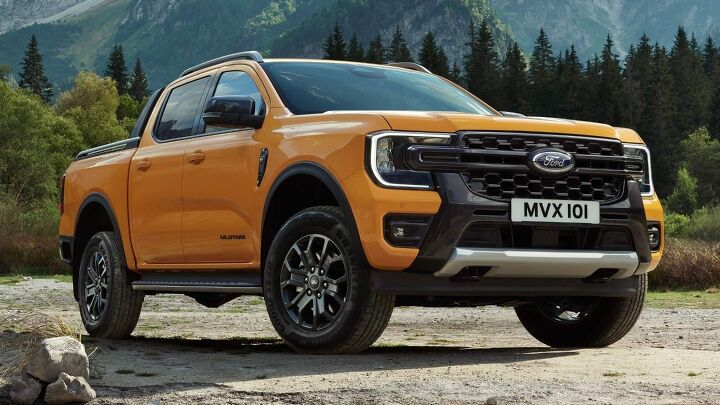













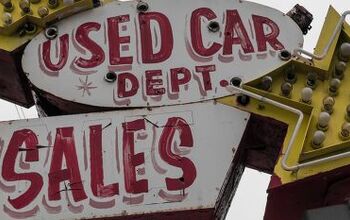







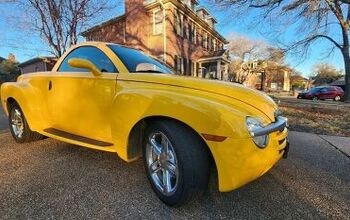


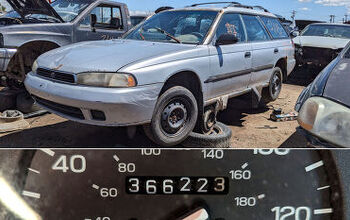
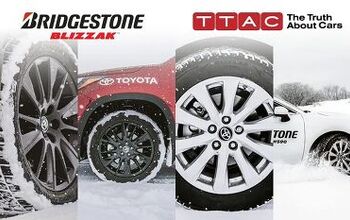
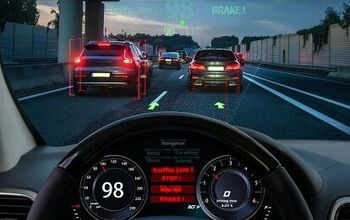



Comments
Join the conversation
"As an American, all of the above sounds borderline insane to your author. "
It still makes better sense than CAFE, and it's not like the US has never used tax policy to influence public policy or behavior.
That's a lot of tax!